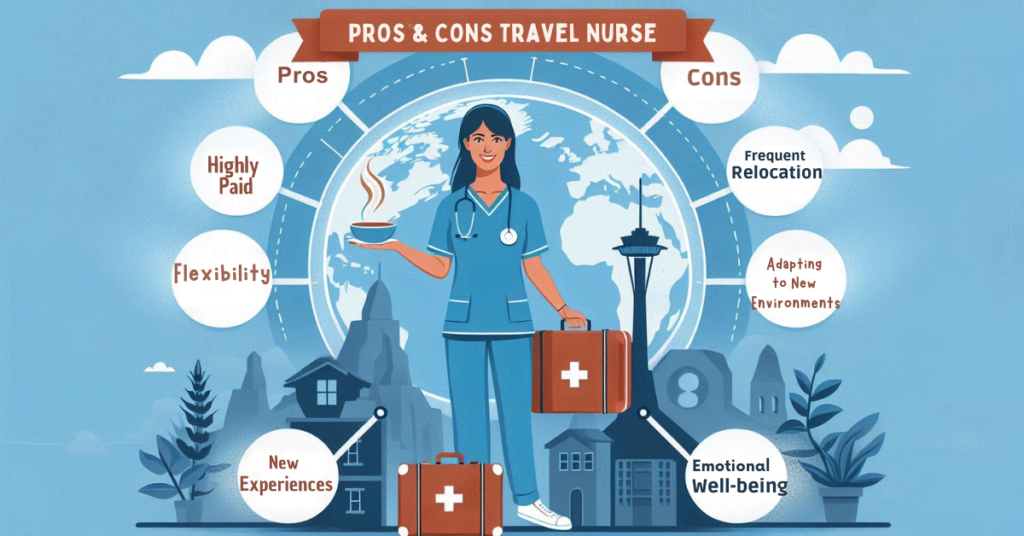How to Become a Travel Nurse: Your Step-by-Step Guide
How to Become a Travel Nurse: Travel nurses are employed professional nurses who take up contractual jobs in different hospitals and healthcare institutions nationwide. They make up for a lack of nurses during man-ups or, in some cases, nurse shortages. Travel nursing could be very advantageous since it provides an opportunity to travel, thrive on individual growth, and earn good pay.
Get a Registered Nursing degree.
Travel nursing jobs require someone first to become a Registered Nurse (RN). It includes graduating from an accredited nursing school and passing the National Council Licensure Examination for Registered Nurses. Nursing degrees include associate, bachelor’s, and master’s degrees.
Gain Experience
While experience conditions alter, most travel nurse agencies prefer at least two years of clinical experience in a distinct specialty. This hands-on practice develops essential skills and knowledge for success in travel nursing.
Also Read: How to Apply Advanced Resource Management Techniques
Consider Certifications
While not mandatory, certifications can enhance your job prospects and earning potential. Standard certifications for travel nurses include:
- Certified Registered Nurse Anesthetist (CRNA)
- Certified Critical Care Nurse (CCRN)
- Certified Emergency Nurse (CEN)
And others, depending on your speciality
Understand Licensing
RehumanizeTravel nurses frequently work in several different states. The Nurse Licensure Compact (NLC) provides important information and makes the licensing procedure easier in member states.
Find a Travel Nurse Staffing Agency
RehumanizeChoosing a well-known travel nurse staffing agency can make the job search process very easy. They arrange the logistics, negotiate the contracts, and are there for you throughout the assignment.
Build Your Resume and Apply
Make a powerful resume that stresses your experience, certifications, and the whole spectrum of skills. In addition to staffing agencies, there are many other travel nurse job boards and platforms.
What to Expect as a Travel Nurse

Pros:
- Highly Paid: The financial aspect of travel nursing makes it very appealing for nurses since the providers cover the travel costs.
- Flexibility: Choose the assignments and locations you feel most comfortable and suitable for your lifestyle.
- New Experiences: Get to know different health facilities, cultures, and cities personally.
- Skill Development: Gain nursing skills through experience with varied groups of patients and difficulties.
Cons:
- Frequent Relocation: It is challenging for some people to be away from their homes most of the time to travel.
- Adapting to New Environments: Each new engagement has different teams, methods, and cultures.
- Work-Life Balance: Working long hours, calling shifts, and moving can disturb a person’s play life.
- Emotional Well-being: Think about the emotional burdens of adjustment to constant change.
Financial Considerations
Research tax implications, housing stipends, and other financial aspects of travel nursing to create a realistic budget.
High-Demand Specialties
Certain nursing specialities are consistently in high demand for travel nurses. Research these areas to maximize your job opportunities and earning potential.
Read: How to Find Agri and Food Industry Resources
Continuous Learning
Travel nursing offers opportunities for professional growth. Stay updated on best practices, attend conferences, and pursue advanced certifications.
Conclusion
Travel nursing is a rewarding career path for nurses seeking adventure and professional challenges. You can build a successful and fulfilling travel nursing career by understanding the pros and cons, carefully planning your finances, and continuously developing your skills.
For Information: Japanese Street Fashion: A Comprehensive Overview
